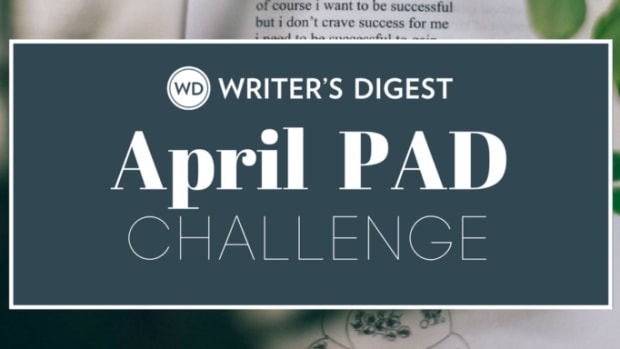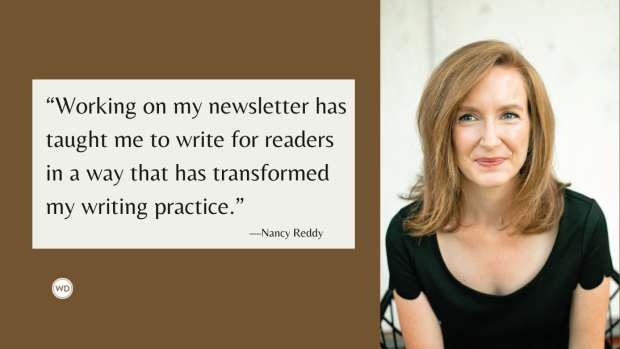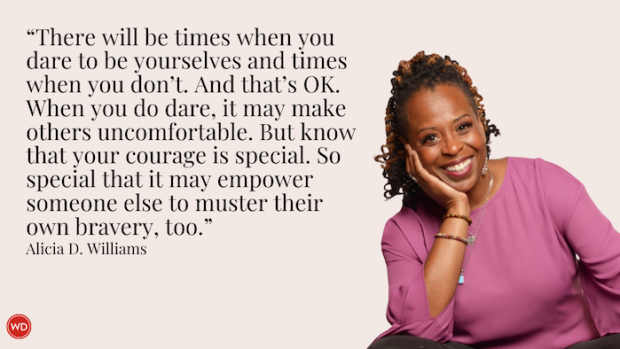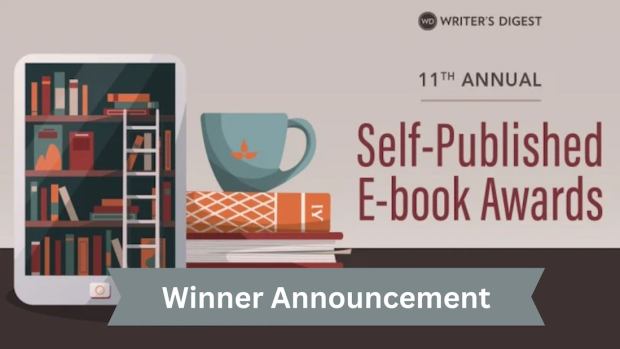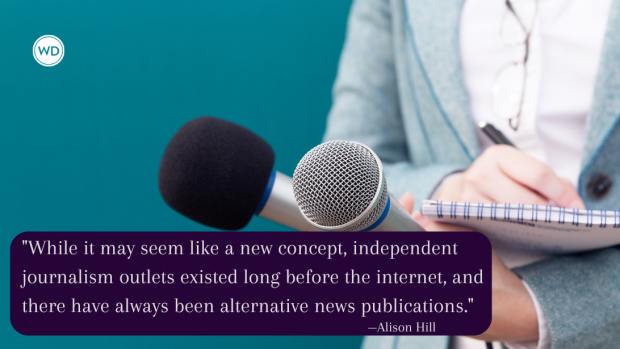The Benefits of Writing Book Reviews
Writing—as both a practice and profession—is a process of many drafts, each of which requires a series of conscious decisions before we can move onto the next. While this understanding of writing is far more accessible than that of the “creative genius” model, to a writer still early in their career, how to make such decisions can appear so opaque it might as well require an epiphany. That’s where writing a book review can help. An exercise that requires careful attention, book reviews sharpen the writer’s lens and uncover paths that can take us, and our writing, to where we want to go.
How to Write a Book Review
A book review is not a summary. It’s not a report. It’s a conversation. “And it should make a pleasurable reading experience even if the reader isn’t interested in the book,” says Tom Zoellner, politics editor of Los Angeles Review of Books.
Just because an author has reached their end destination for a book doesn’t mean they successfully brought you along with them, or that your reading experience aligns perfectly with their intention. That’s information you share as a reviewer. How was the trip? Did it end where you predicted? Any high points or speed bumps along the way? You’ll want to answer these kinds of questions, and while they may sound entirely personal, remember there is still the label of “reviewer” to live up to. The same way your expectations shape your reception of a book, readers will have expectations for you. It’s important to contextualize your response in a way that a literary audience finds relevant. How do you do that?
“Read,” says Katharine Coldiron, reviews editor of Barrelhouse. “Liking is not the point. It’s whether the book is successful or not. And the only way you can tell if it’s successful is to have enough literary context to determine what the writer is doing in the great discourse of books. So read. Read everything you can and think about how your reading life impacts what you have to say.”
Zoellner agrees: “If you want to participate in the big conversation of literary criticism, you should be an avid consumer of reviews. It should be part of your oxygen.”
(What Is a Blurb in Publishing?)
Look to published reviews as examples and analyze them with the same lens you use to review. What similarities do you see between them? How would you describe the language? The organization? Although some of these factors will depend on the outlet, all publications will require you to demonstrate knowledge on the genre in order to appear credible as a reviewer. And the only way to do that is to read.
The Benefits of Writing Book Reviews to Emerging Writers
When you give a book the careful attention required by a review, the process behind its construction grows more transparent. “Reviewing makes me read deeply and think about the writers’ choices,” says Liz Harmer, Chapman University MFA graduate and book reviewer for TAB: The Journal of Poetry & Poetics. “I have come to stronger beliefs about what I love and why—things like point of view and tense and voice become really clear to me as aesthetic choices that can go wrong.”
In addition to the stylistic opportunities Harmer describes, such increased awareness can greatly benefit the authenticity of our work. Media plays a large role in shaping most of our views on the world, and we can grow so accustomed to its realities, they slip into our writing without our even knowing it.
When we reproduce the clichés we see in mainstream media, however, we risk reinforcing negative stereotypes of some identities and perpetuating the invisibility of others—potentially even our own. I, for one, never addressed the issue of class in my writing despite the enormous role poverty had on my upbringing. Until I began writing book reviews, I wrote characters in the “neutral” middle class and never thought to ask why.
MFA student Tryphena Yeboah is conscious of this need for diverse representation. A reviewer for Tab, Yeboah also features personal “tiny reviews” on her Instagram, where she says she’s “quite intentional about choosing African literature, regardless of its publication year. My aim is not only to read work by writers of my kind but also to get the word out about its existence and the forceful nature of the writings.” Because book reviews tell readers which texts are worth their attention, they can be a powerful tool in diversifying the largely exclusive literary canon.
And there is currently a great need to take advantage of reviews in such a way. As Chapman’s MFA director Anna Leahy points out in her contribution to Praxis, Practice, Print: Creative Writing Scholars on the Publishing Trade (Routledge, forthcoming 2021), the 2019 VIDA: (Women in Literary Arts) Count shows both the New York Review of Books and London Review of Books publish twice as many men as women. The purpose of the VIDA Count is to tally “genre, book reviewers, books reviewed, and journalistic bylines to offer an accurate [gender] assessment of the publishing world,” and Leahy notes its numbers from 2019 are sadly “a big improvement in closing the gender gap over the last decade.” If emerging writers prioritize the works of those not well represented in the publishing industry, they can be a part of changing the image of what writing—and who a writer—can be.
How to Pitch a Book Review
“Book reviews were a great way to gain early publishing experience,” says Chapman MFA student and Tab Journal reviewer Jason Thornberry. You don’t need fancy credentials or connections. (In fact, if you do have a connection to the writer you are reviewing, that can be an issue that gets in the way.) For the most part, all you need is persistence.
“It’s a really good foot in the door, assuming you can do it,” says Coldiron. “But it’s not a talent. It’s a skill that you have to learn how to do and fail at a lot and hopefully find editors who can help you.”
Apart from some of the larger publications like New York Review of Books, most outlets that publish reviews accept unsolicited submissions. Their guidelines differ—some want queries, some want finished reviews, some allow for simultaneous submissions and some do not—and it’s helpful to locate them on the outlet’s website before you start drafting. You don’t want to send a magazine your review only to find out you’re a thousand words over or under what they want.
While you perform this research on the publication, be sure to also familiarize yourself with the titles they publish. What genres do they tend to feature? Are they large or indie releases? New or old? LARB, for example, prefers not to publish reviews six months past a book’s publication. If you want to write for them, you’ll likely want to choose a book that has not yet been published in order to compensate for the time it takes to read, write, revise, and submit.
(8 Tips to Build Your Supportive Writing Network)
Catalogs of these upcoming books can be found on publishing houses’ websites, along with the contact information you’ll need to request a free galley. In this request, you’ll state where the review will run (or, if you write the review before securing an outlet, you might list a few options where you intend to submit). You’ll also include a few writing clips. Because publishers want eyes on their books, you do not need an extensive list of prior publications to secure a galley—one can be enough. However, if you don’t have any clips, and your request is met with silence from the publisher, you might try reviewing an older book first. Several literary journals like New Letters state they are “primarily—but not exclusively—interested in reviewing excellent books (even movies and visual art) otherwise not receiving much attention in the national media.” If you complete such a review, not only will it provide you with the work sample you need, it can also create a platform for a book the literary world allowed to pass by.
Finally, social media provides one more resource to locate books for review. Especially on Twitter, writers often put out calls for reviewers when they have books that will soon be released. Depending on the author’s name recognition, this method might require you to battle for attention, but it can also provide a great ice breaker in the literary community. As a beginning writer, it can be intimidating to connect with accomplished authors without feeling the flood of imposter syndrome, and book reviews can help generate conversations in which you participate as more than a student or fan—an experience that can be validating for both the reviewer and writer alike. “I feel grateful to everyone who reviewed my book,” says Harmer, author of the novel The Amateurs. “It’s wild and even overwhelming to be read carefully!”
Whether it’s emailing a publisher, collaborating with a magazine editor, or promoting the book of another writer, the interactions afforded by book reviews can help solidify your sense of place as a writer. This can prove particularly helpful when it’s time for your own book deal—just look at Rebecca Skloot. Former Chapman Presidential Scholar and author of The Immortal Life of Henrietta Lacks, Skloot often cites book reviews as pivotal to the relationships she built with publication outlets and editors.
A book review is no small task. It requires countless hours of reading, research, and revision to construct what a reader might spend no more than five minutes digesting. Why then, take it on? Because the book review is not about the review alone. Just like the hundreds of drafts that existed prior to a book’s publication, the process behind a review isn’t wasted even if it isn’t seen. It’s experience that goes into you.

Don’t know how to start a blog? Not sure what to focus on? Don’t fret! This online writing workshop will guide you through the entire blogging process—how to create and setup a blog, where to start, and much more. You’ll learn how to attract readers and how to market your writing. Start a successful blog today and get noticed by editors and publishers.



